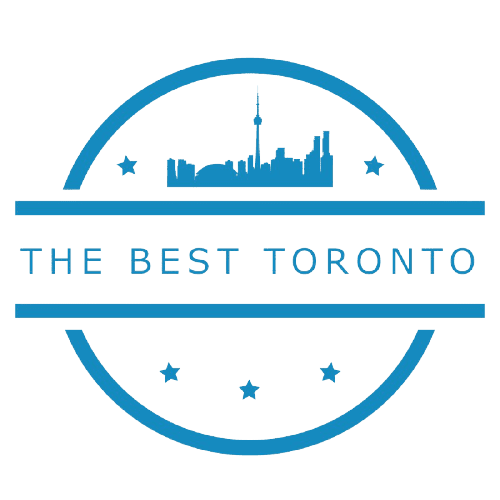Mold is a pervasive issue that can significantly impact the health of individuals living in affected environments. Given the potential mold health risks, Toronto residents should be especially cautious. In Toronto, humidity can rise in the summer. Damp conditions are common in the fall and spring. Because of this, mold growth is a big worry for homeowners.
Understanding the health effects of mold exposure in Toronto is important. It helps residents know the mold-related illnesses they may face. This knowledge is key to keeping a safe living space.
This article looks at mold health risks in Toronto. It also discusses ways to prevent mold and the need for quick cleanup.
Understanding Mold and Its Growth Conditions Toronto
Mold is a type of fungus that thrives in moist environments. It reproduces through tiny spores that can easily become airborne, making it a common indoor pollutant. The ideal conditions for mold growth include:
- Moisture: Mold requires a damp environment to flourish. This can result from water leaks, high humidity, or condensation.
- Organic Material: Mold feeds on organic materials such as wood, paper, and fabric, which are often found in homes.
- Most molds like temperatures between 60°F and 80°F (15°C to 27°C). This range is common in indoor settings.
In Toronto, the combination of high humidity and older housing structures creates a perfect storm for mold proliferation. Homeowners may not even realize they have a mold problem until it becomes a significant health hazard. These Toronto mold problems highlight the importance of early detection and professional intervention.
Health Risks Associated with Mold Exposure Toronto
Exposure to mold can lead to a variety of health issues, particularly for sensitive individuals. We can categorize the health risks into three main types: allergic reactions, respiratory problems, and toxic effects. Toronto residents often underestimate the health risks that mold poses, especially in older homes.
Allergic Reactions
Many people are allergic to mold spores, which can trigger symptoms such as:
- Sneezing
- Runny or stuffy nose
- Itchy or watery eyes
- Skin rashes
For individuals with pre-existing allergies, exposure to mold can exacerbate their symptoms, leading to more severe reactions. Children and those with compromised immune systems are particularly vulnerable. Mold symptoms Toronto homes often go unnoticed until the reactions become chronic or severe.
Respiratory Problems Toronto
Mold exposure can lead to significant respiratory issues, especially in individuals with asthma or other chronic lung conditions. Common respiratory symptoms include:
- Coughing
- Wheezing
- Shortness of breath
- Chest tightness
In some cases, being around mold for a long time can cause ongoing breathing problems. It is important for those affected to get medical help. These are some of the most concerning health effects of mold exposure Toronto households face year-round.
Toxic Effects
Some types of mold, like Stachybotrys chartarum (often called black mold), make mycotoxins. These can cause serious health problems. These toxins can lead to:
- Neurological symptoms, including memory loss and confusion
- Fatigue and chronic fatigue syndrome
- Immune system suppression
It is important for homeowners to understand the harmful effects of mold. These effects can cause long-term health problems. Concerns about toxic mold Toronto and black mold health risks Toronto are on the rise, especially in homes with previous water damage.
Identifying Mold in Your Home Toronto
Detecting mold early can prevent serious health issues. Here are some common signs that mold may be present in your home:
Visible Mold Growth Toronto
Mold can appear in various colours, including black, green, and white. Look for discolouration on walls, ceilings, and floors, particularly in areas prone to moisture, such as bathrooms and kitchens. Mold in homes Toronto often hides behind walls and under flooring, making professional assessments necessary.
Musty Odours
A persistent musty smell is often a telltale sign of mold growth. If you notice this odour, especially in enclosed spaces, it may indicate hidden mold. A change in air quality and mold Toronto homes experience is often a direct result of undetected growth.
Water Damage
Signs of water damage, such as peeling paint, warped walls, or damp spots, can create an environment conducive to mold growth. Addressing these issues promptly can help mitigate mold risks.
Vulnerable Populations
While mold can affect anyone, certain groups are at a higher risk of experiencing severe health effects. These include:
Children
Young children are particularly susceptible to mold-related health issues because of their developing respiratory systems. Exposure can lead to long-term respiratory problems and increased asthma risk.
Elderly Individuals Toronto
Seniors often have weakened immune systems, making them more vulnerable to the effects of mold. Respiratory infections and other complications can arise from mold exposure in this demographic.
Immunocompromised Individuals
People with weak immune systems are at greater risk from mold. This includes those undergoing chemotherapy or living with HIV/AIDS. They may experience serious health problems due to mold exposure.
Prevention Strategies
Preventing mold growth is essential for maintaining a healthy home environment. Here are some effective strategies:
Control Humidity Levels Toronto
Keeping indoor humidity below 50% can significantly reduce the likelihood of mold growth. Use dehumidifiers in damp areas and ensure proper ventilation throughout your home. This is a key strategy for tackling Toronto mold problems before they escalate.
Address Water Leaks Promptly
Fixing leaks in roofs, pipes, and windows can prevent moisture accumulation, which is a primary contributor to mold growth. Regularly inspect your home for signs of water damage.
Improve Ventilation
Ensure that areas prone to moisture, such as bathrooms and kitchens, are well-ventilated. Use exhaust fans and open windows to promote air circulation and reduce humidity.
The Importance of Professional Mold Inspection
If you suspect mold in your home, it’s crucial to seek professional help. Mold inspection services in Toronto detect hidden mold and provide expert recommendations. Here’s why professional inspection is essential:
Comprehensive Assessment
Professionals use specialized equipment to detect mold in hard-to-reach areas, ensuring a thorough evaluation of your home.
Accurate Identification
Different types of mold pose varying health risks. Professionals can identify the specific mold species present, allowing for targeted remediation strategies.
Effective Remediation
Once experts find mold, they can use effective methods to remove it. This helps ensure that someone solves the problem and prevents it from coming back. Engaging mold remediation Toronto specialists ensures a lasting solution tailored to local conditions.
Mold Remediation Process
If mold is detected in your home, a systematic remediation process is necessary to ensure safe removal. This typically involves:
Containment
To prevent mold spores from spreading during removal, affected areas are sealed off using plastic sheeting.
Removal
You may need to remove and dispose of mold-infested materials, such as drywall or carpeting, properly. You can clean non-porous surfaces with specialized solutions.
Restoration
After mold removal, any damaged structures must be repaired or replaced. This may include repainting walls or replacing insulation. For lasting results, it’s important to hire experienced mold removal Toronto professionals who understand the city’s unique environmental conditions.
Long-Term Health Implications
Ignoring mold issues can lead to long-term health complications. Chronic exposure to mold can result in:
Respiratory Diseases
Individuals exposed to mold over extended periods may develop chronic respiratory diseases, including asthma and bronchitis.
Neurological Issues
Toxic molds can cause neurological symptoms. These include memory loss and problems with thinking. Such issues can greatly affect quality of life.
Immune System Dysfunction
Prolonged mold exposure can weaken the immune system, making individuals more susceptible to infections and other health issues. These mold-related illnesses Toronto residents face underscore the importance of prevention and timely intervention.
Mold poses a serious health risk that people should not ignore. Knowing what causes mold to grow, spotting signs of mold, and taking steps to prevent and remove it can keep you healthy. If you suspect mold in your home, seeking professional assistance is crucial for ensuring a safe living environment. By prioritizing mold prevention and remediation, you can create a healthier home for yourself and your family.
This article provides a comprehensive overview of mold health risks Toronto, emphasizing the importance of awareness, prevention, and professional intervention. If you care about air quality and mold in Toronto, or worry about black mold health risks, take action now. A mold inspection in Toronto can give you peace of mind and help protect your health in the future.








